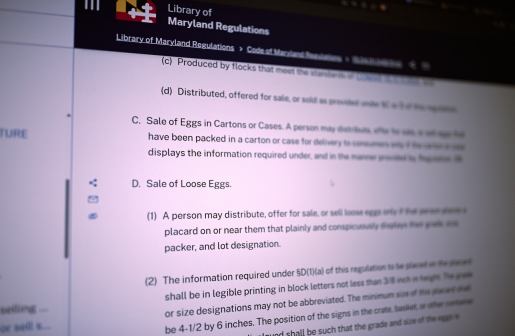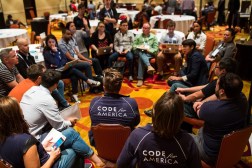Civic Innovation Challenge Inventory pairs problems with open data in Cambridge

The city of Cambridge, Massachusetts, may have uncovered a new tactic to trigger aid from local tech experts by matching open data to civic issues.
The city created a new data set this year called the Civic Innovation Challenge Inventory (CICI), a project that marries the city’s trove of publicly accessible data with specific challenges that Cambridge faces. The short but growing list represents a more organized approach to open data and answers the age-old question city government so frequently hears from its citizens of: “How can I help?”
For example, Cambridge is looking for a solution to manage its parking, and the issue is paired with a data set of ticket violations — information that contains where a violation occurred, the time, the officer involved and type of metering regulations in force. To find a remedy, technologists could code an app that uses the data to map problem areas, note peak times of the day for violations and generate other takeaways that may improve parking regulation.
The idea of pointing to a problem, asking for a solution and providing the information that might solve the problem may seem intuitive, yet since the beginning of the open data movement it hasn’t always worked this way. This was an observation made by Josh Wolff, the city’s open data program manager, two years ago when attending Hack Night, a recurring gathering led by Code for Boston, the local Code for America brigade.
“What I noticed is that governments — Cambridge included — often ask civic tech folks not only to help us apply technology to solve problems, but to actually identify the problems to solve,” Wolff said. “And I thought that there was more room for us to be a better collaborative partner.”
Cities have policy analysts, researchers, department heads and elected leaders who spend much of their days identifying the exact problems a city is facing. To ignore the expertise is an obvious waste, Wolff said. This proactive strategy — used by CICI since the data set’s creation in February — deviates from typical approaches on open data in which cities see themselves as just publishers of data, either leaving problem solving in the hands of the community, or asking for help only through coding challenges and hackathons. CICI is a mechanism to institutionalize problem solving into open data.
“It’s not just a challenge that last a few weeks, not a single day hackathon,” Wolff said. “It’s an ongoing effort, and other cities are beginning to take notice.”
The idea for the platform crystallized after Jennifer Angarita, a research fellow hired out of Harvard Kennedy School, assessed the city’s collaboration efforts.
“One of her suggestions was this idea of a problem inventory where staff in Cambridge, or in any government organization would identify fruitful problems to work on with technology and then people at civic technologist groups, like Code for Boston, could look through that list and apply technology,” Wolff said.
Cambridge integrated this into its data publishing by directing staff who submit data to its portal also submit potential challenges via an online form.
“Then, each night we have a script that just crawls through our open data portal, looks for the new data sets, and then grabs these problem statements from each data set,” Wolff said.
Already, CICI is showing its value. Prompted by the inventory, a local entrepreneur built an interactive map detailing zoning appeals requests. The map helps staff plan by displaying status, type and the time of the requests were submitted. Residents can see which projects are under review, which have been denied, and the requests still needing payments for processing.
The greater vision is for cities across the U.S. to apply this same problem solving method to their data sets. That way, Wolff said, whether a city is in the middle of nowhere or is a civic tech hub like San Francisco or Boston, technologists from across the region and across the country have a checklist of needed digital solutions.
“I think part of the real value in a system like this is that because it’s all virtual, because it’s all online, cities are able to use it to reach civic technologists around the world and they don’t always have to depend anymore on in-person contact,” Wolff said.






